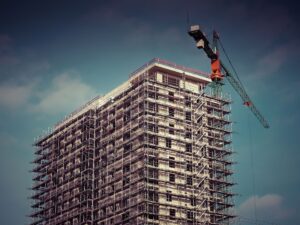Owning a leasehold flat in the UK comes with its own challenges, one of which is the need to extend your lease from time to time.
In this comprehensive Strangford Management guide, we will delve into the process of extending your lease for a leasehold flat in the UK, discussing the reasons why you might want to extend your lease, the eligibility criteria and the steps involved in the process.
Why Extend Your Lease?
There are several reasons why you might want to extend the lease on your leasehold flat:
- Increase Property Value: Properties with a short lease are generally worth less than those with a longer lease. Extending your lease can significantly increase the value of your property, making it more attractive to potential buyers.
- Improve Mortgage and Sale Prospects: As the length of your lease decreases, it becomes more difficult to secure a mortgage on the property. This can make it challenging to sell the property, as potential buyers may struggle to find mortgage lenders willing to lend on a short lease. Extending your lease can improve your prospects of selling your flat and obtaining a mortgage.
- Avoid Expensive Marriage Value: If your lease has less than 80 years remaining, extending it may become more expensive due to the addition of ‘marriage value’. This is the increase in the value of the property as a result of the lease extension. By extending your lease before it reaches this threshold, you can avoid paying this additional cost.
- Continued Right to Occupy: As a leaseholder, you have the right to occupy your property for the duration of the lease. Extending your lease ensures that you can continue to live in your flat without the risk of losing your home when the lease runs out.
Eligibility Criteria for Lease Extension
To be eligible to extend your lease, you must meet the following criteria:
- Long Lease: The flat must be held under a long lease, which means it was originally granted for a term of more than 21 years.
- Ownership Duration: You must have owned the flat for at least two years. This date starts from when you are registered as the owner at the Land Registry.
Lease Extension Options
There are two routes to extending your lease: the formal route and the informal route.
- Formal Route
The formal route is governed by the Leasehold Reform, Housing and Urban Development Act 1993. This legislation allows eligible leaseholders to extend their lease by 90 years for a flat and 50 years for a house, with a nominal or very low rent payable (peppercorn rent). Under this route, the freeholder and leaseholder must follow a strict timetable and procedure set out by the law. - Informal Route
The informal route involves directly approaching the freeholder and negotiating a lease extension. While there is no obligation for the freeholder to respond or agree to the extension, it can be a faster and more flexible option. However, it’s important to note that you are not protected by the Leasehold Reform Act in this case, which means the freeholder can refuse to extend the lease or alter the terms of the lease.
Step-by-Step Lease Extension Process
- Check Your Eligibility: Ensure you meet the eligibility criteria for extending your lease.
- Obtain Financial Advice: Make sure you have the necessary funds to cover the costs of extending your lease, including the premium, professional fees, and any potential taxes.
- Appoint a Valuer: Hire a valuer with expertise in leasehold properties to provide a formal valuation of your flat and advise on the likely cost of the lease extension premium.
- Appoint a Solicitor: Engage a solicitor experienced in leasehold law to handle the legal aspects of your lease extension. They will guide you through the process, serve the necessary notices, and negotiate the terms of the new lease.
- Serve a Section 42 Notice (Formal Route): Your solicitor will serve a Section 42 Notice to the freeholder, formally requesting a lease extension and stating the premium you are willing to pay. The freeholder has at least two months to respond.
- Negotiate with the Freeholder (Informal Route): If you choose the informal route, you or your solicitor can approach the freeholder to negotiate the lease extension terms and premium.
- Agree on Terms and Premium: Once the terms and premium have been agreed upon, your solicitor will finalize the lease extension documents.
Costs Involved in Extending Your Lease
The total cost of extending your lease will comprise two parts:
- The Premium: The premium is the amount you will pay the landlord for the lease extension. The valuation calculation to determine the premium is complex and depends on factors such as ground rents, yields, and the length of the unexpired term. You can get a rough estimate using the Leasehold Advisory Service’s lease extension calculator.
- Professional Fees and Costs: These include your solicitor’s and surveyor’s fees, the landlord’s legal and valuation fees, and any applicable taxes such as Stamp Duty Land Tax (SDLT).
Extend your Lease – Common Questions
1. What Happens at the End of a Lease?
When your lease expires, you do not have to leave the property immediately. The lease is considered a tenancy, and the leaseholder is a tenant. The tenancy will continue on the same terms unless you or the landlord decide to end it. However, it’s essential to extend your lease to avoid any potential legal issues and ensure your right to occupy the property.
2. Can I Extend My Lease on a Shared Ownership Property?
If you have a shared ownership property, you may not have the same rights to extend your lease under the Leasehold Reform Act 1993. However, you can check with your landlord to see if they have a lease extension policy in place. If you eventually purchase 100% of the property, you will then have the right to extend the lease, provided you meet the eligibility criteria under the Act.
3. How Long Does It Take to Extend a Lease?
The lease extension process can take anywhere from four to twelve months, depending on the route chosen and the complexity of the negotiations. It’s essential to allow plenty of time for the process, especially if you are nearing the 80-year threshold or planning to sell your property in the near future.
In Conclusion
Extending your lease for a leasehold flat in the UK can be a complex and time-consuming process. However, doing so can significantly increase the value of your property, improve your mortgage and sale prospects, and provide peace of mind knowing you have the right to occupy your home for an extended period. It’s important to understand your rights as a leaseholder, seek professional advice from solicitors and surveyors with expertise in leasehold properties, and carefully consider the costs involved in extending your lease.
The leasehold sector can be complicated and confusing so our Strangford Management experts are on hand to advice management companies and resident freehold companies how to work in the best way, but also to provide much needed clarity for leaseholders in such matters as extending their lease. Contact us today to discuss how we can make an impactful improvement to the management of your development.
Read more…
- EWS1 Form Explained: Hidden Requirements Your Surveyor Won’t Tell You
- NHBC Cover Explained: Your Essential Guide for Leaseholders (2025)
- Ministers Set £30bn Cladding Crisis Deadline for 2029
- Service Charge Disputes Made Simple: Your Rights as a Leaseholder
- Breaking: Leasehold Reform Scraps Two-Year Wait Rule From January 2025




